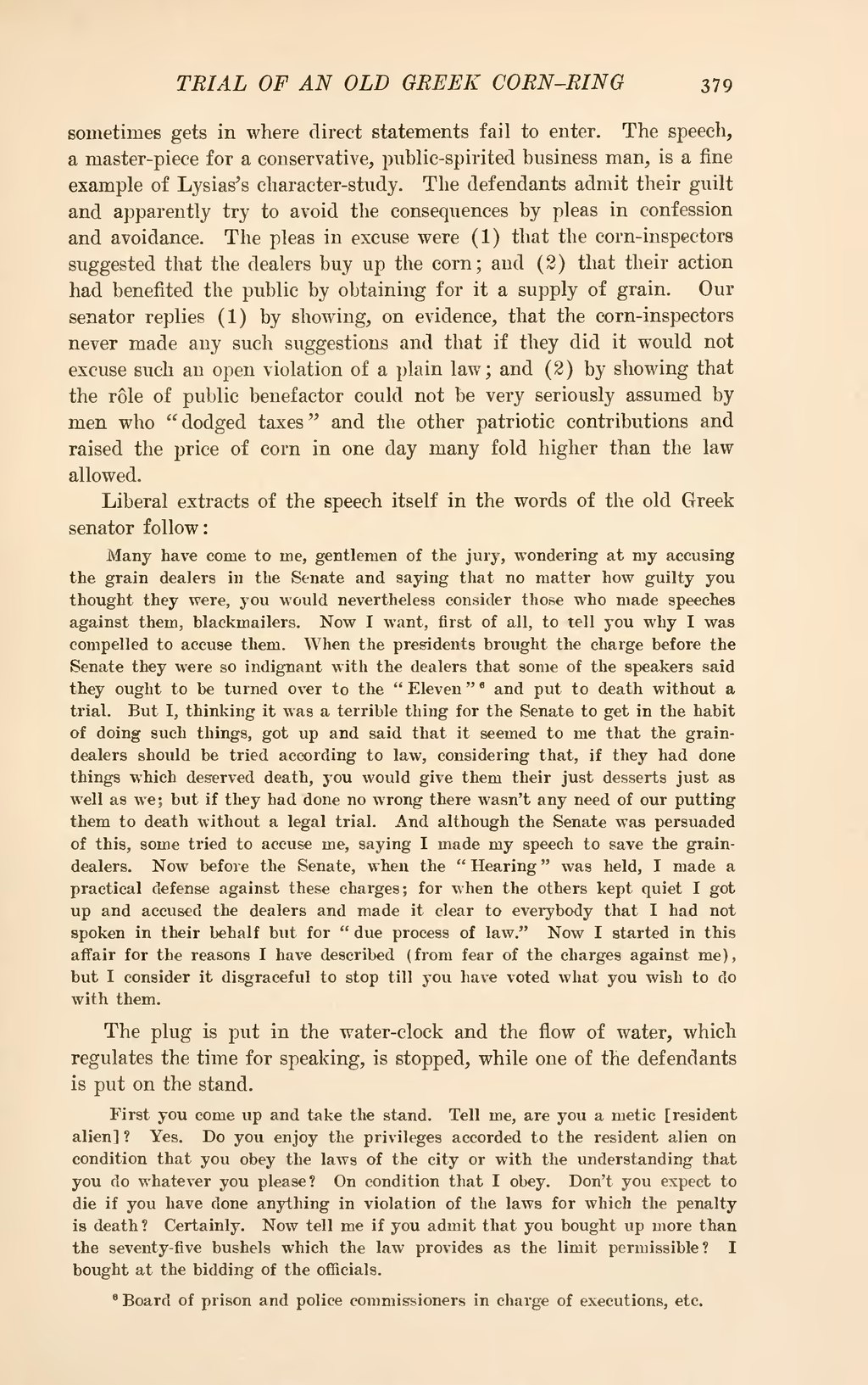sometimes gets in where direct statements fail to enter. The speech, a master-piece for a conservative, public-spirited business man, is a fine example of Lysias's character-study. The defendants admit their guilt and apparently try to avoid the consequences by pleas in confession and avoidance. The pleas in excuse were (1) that the corn-inspectors suggested that the dealers buy up the corn; and (2) that their action had benefited the public by obtaining for it a supply of grain. Our senator replies (1) by showing, on evidence, that the corn-inspectors never made any such suggestions and that if they did it would not excuse such an open violation of a plain law; and (2) by showing that the role of public benefactor could not be very seriously assumed by men who "dodged taxes" and the other patriotic contributions and raised the price of corn in one day many fold higher than the law allowed.
Liberal extracts of the speech itself in the words of the old Greek senator follow:
Many have come to me, gentlemen of the jury, wondering at my accusing the grain dealers in the Senate and saying that no matter how guilty you thought they were, you would nevertheless consider those who made speeches against them, blackmailers. Now I want, first of all, to tell you why I was compelled to accuse them. When the presidents brought the charge before the Senate they were so indignant with the dealers that some of the speakers said they ought to be turned over to the "Eleven"[1] and put to death without a trial. But I, thinking it was a terrible thing for the Senate to get in the habit of doing such things, got up and said that it seemed to me that the grain-dealers should be tried according to law, considering that, if they had done things which deserved death, you would give them their just desserts just as well as we; but if they had done no wrong there wasn't any need of our putting them to death without a legal trial. And although the Senate was persuaded of this, some tried to accuse me, saying I made my speech to save the grain-dealers. Now before the Senate, when the "Hearing" was held, I made a practical defense against these charges; for when the others kept quiet I got up and accused the dealers and made it clear to everybody that I had not spoken in their behalf but for "due process of law." Now I started in this affair for the reasons I have described (from fear of the charges against me), but I consider it disgraceful to stop till you have voted what you wish to do with them.
The plug is put in the water-clock and the flow of water, which regulates the time for speaking, is stopped, while one of the defendants is put on the stand.
First you come up and take the stand. Tell me, are you a metic [resident alien]? Yes. Do you enjoy the privileges accorded to the resident alien on condition that you obey the laws of the city or with the understanding that you do whatever you please? On condition that I obey. Don't you expect to die if you have done anything in violation of the laws for which the penalty is death? Certainly. Now tell me if you admit that you bought up more than the seventy-five bushels which the law provides as the limit permissible? I bought at the bidding of the officials.
- ↑ Board of prison and police commissioners in charge of executions, etc.

